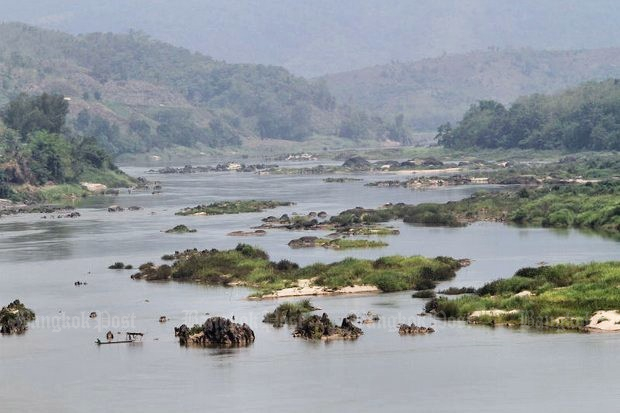
A network of environmentalists is getting ready to protest against a Chinese government survey of the Khon Pi Long rapids in Chiang Rai.
The Chinese team on Tuesday began its 50-day study of the rapids, which lie along the Mekong River. Environmentalists fear China wants to remove the rapids with explosives to clear a passage along the river, which they say will harm the river's ecology and local communities.
Jeerasak Inthayos, coordinator of the Rak Chiang Khong Conservation Group, said the group and its partners will begin demonstrating on Friday, along with local people.
According to the plan, the Chinese will explore 15 parts of the rapids. This covers a 96km section of the Mekong River starting from the Golden Triangle, a mountainous area where the borders of Thailand, Myanmar and Laos conjoin, to Kaeng Pha Dai in Chiang Rai's Wiang Kaen district.
China's Second Harbor Consultants will lead the exploratory work in geology, hydraulics and engineering, according to reports.
"We want to let both [the Thai and Chinese] governments know that we will protect these rapids from any blasts as this could prove a disaster to the ecological system and local communities," he said.

Mr Jeerasak said Beijing should first conduct studies to check the results of the first phase of the survey project that was carried out in 2002 in Chinese territory.
The cabinet gave its approval last December to the so-called "Development Plan of International Navigation on the Lancang-Mekong River: 2015-2025".
This included plans to use detonations to facilitate the passage of 500-gross-ton barges along the river from China's southwestern Yunnan province to Luang Prabang in northern Laos.
At the time, 20 networks tasked with protecting the Mekong River issued a statement to try and stop the project. They said the blasts could jeopardise fish breeding and threaten rare species like the giant catfish, among other negative side effects.
Other critics say the survey may threaten Thailand's territorial claims to certain areas on the Laos border based on deepwater channels agreed under a French treaty.
Prime Minister Prayut Chan-o-cha has brushed aside these concerns, saying it is more important to balance environmental considerations with economic development.